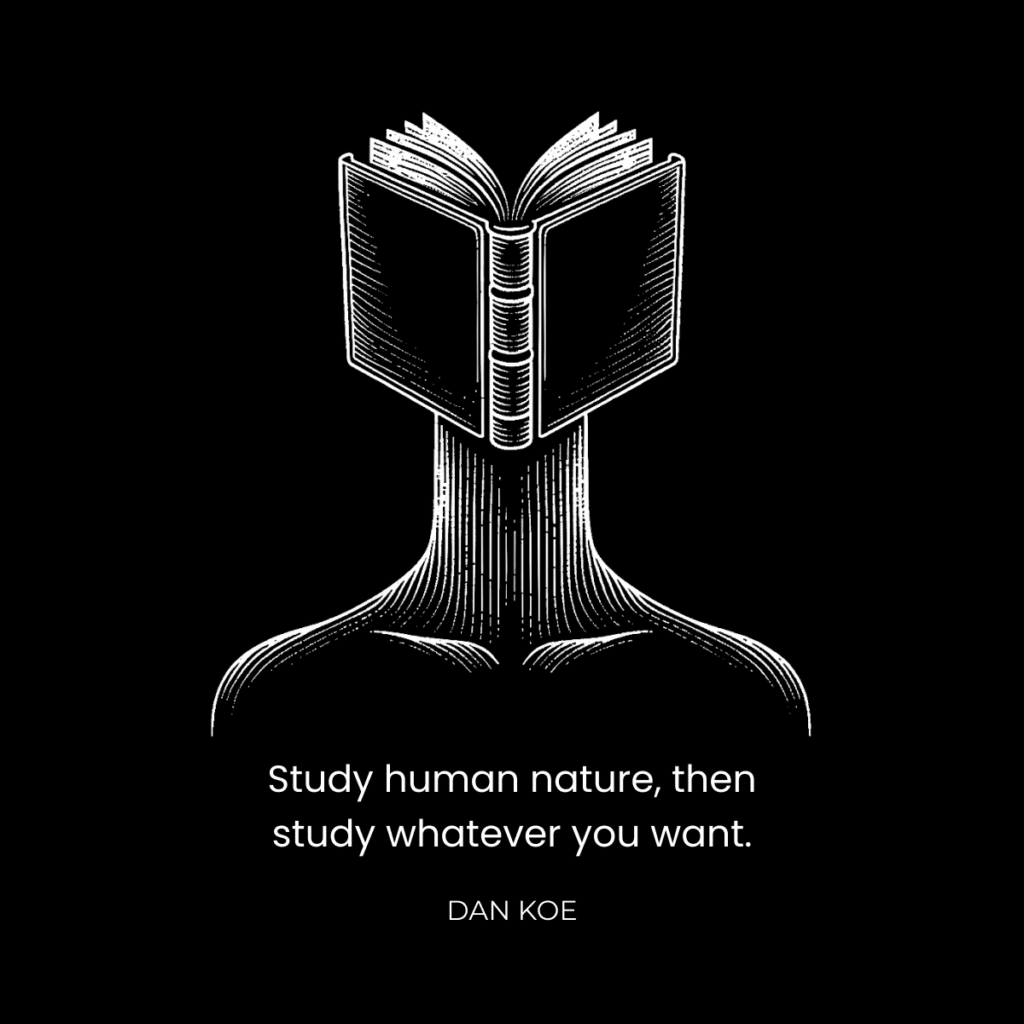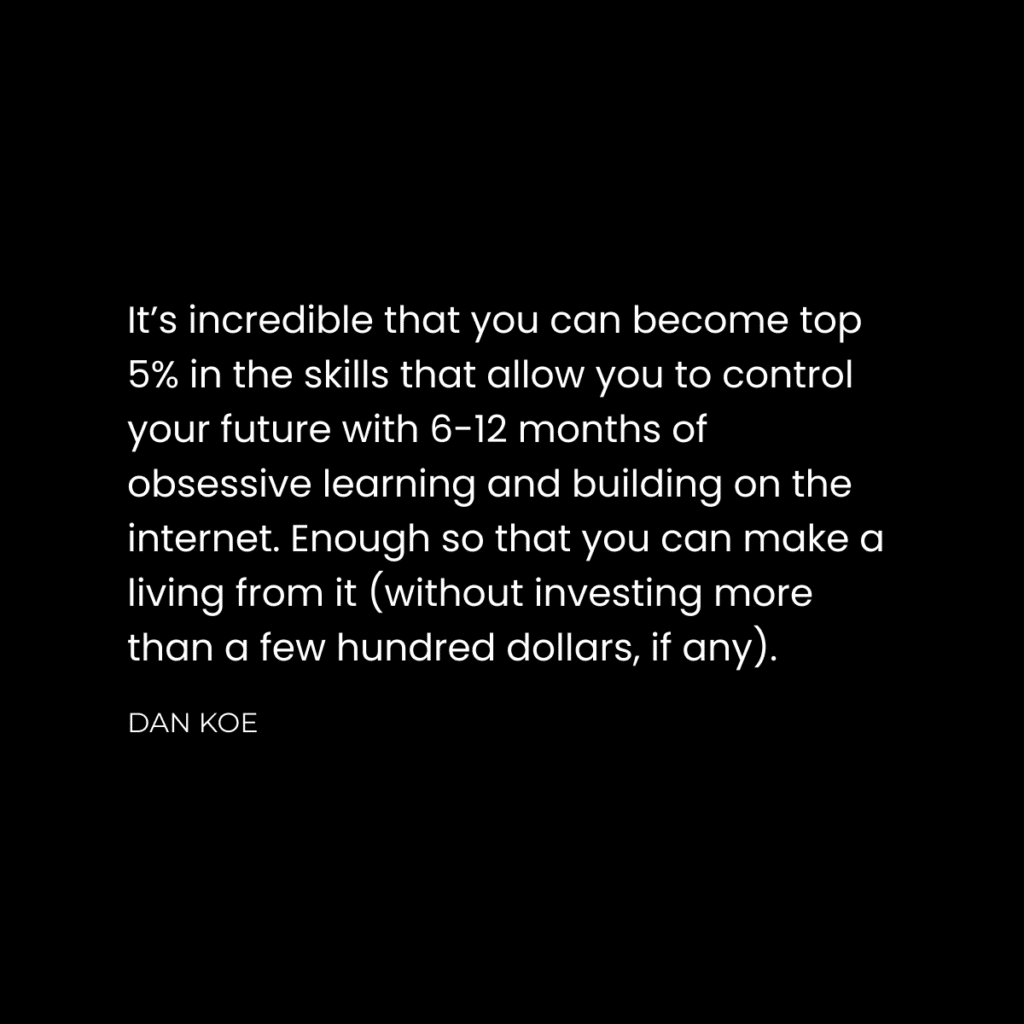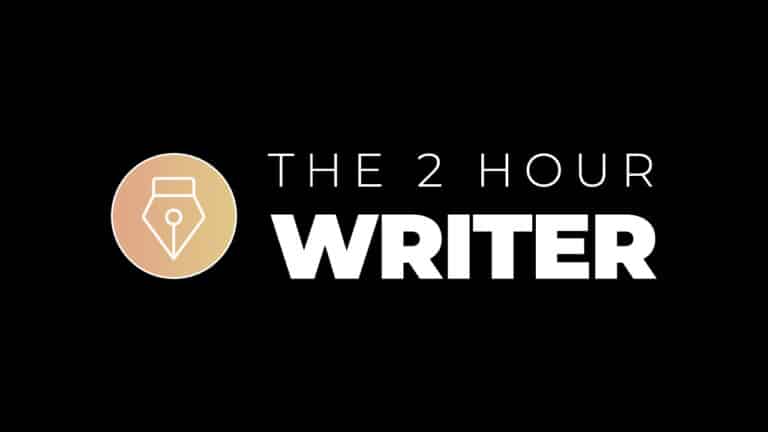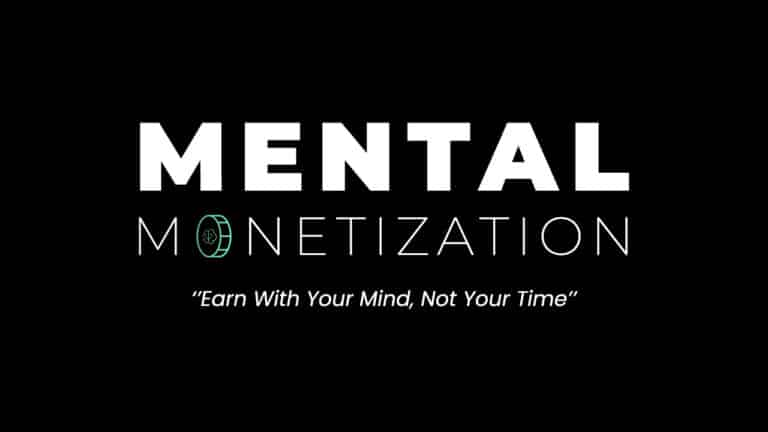I’ll be honest.
I’m worried.
I’ve gone deep into the AGI and post-labor-work rabbit hole.
There’s been a few questions on my mind for the past month:
- What can humans do that machines can’t?
- What will the future of work look like?
- What jobs – if any – will persist over the next 20 years?
- What can we, as humans, do to secure an above-average future?
With these problems at the forefront of my mind, I’ve found a few answers that may bring you optimism and clarity as you enter the unknown.
I want to focus on this point that many are worried about:
We don’t know what to teach children because we don’t know what will be relevant in 20 years.
I was worried about this too until I came across a post by Devon Erikson on X that shines light on the issue.
I’ve been binging any podcast I can find of him and reading his new sci-fi fiction book, Theft Of Fire. He is easily becoming one of my favorite thinkers.
I hope one day, once I’ve burned through his work, I can hold a high-level conversation with him on a podcast to share the similarities and differences between our worldviews. For now, I am the student.
On to his points:
Only slaves are expected to perform one task for their entire life.
Our current education system reflects the education of slaves.
They were career-specific skills like growing wheat, herding sheep, and riding a horse.
Today, we are taught to be useful workers. We are taught to obey the authority. We are conditioned to get good grades out of fear of punishment.
A free man is expected to act on his interests and do many things throughout his life.
If you don’t create a purpose, you will be assigned one.
A purpose is a goal. Most people don’t choose their own goals.
A goal implies knowledge and skills that must be learned to solve problems that prevent you from achieving the goal.
If you don’t choose your own goal, you do not choose what you learn or what problems you solve. Your destiny is decided for you because the only potential you know is the one you were assigned.
The difference between the two is how to live, how to think, and how to learn.
True education, not a clone-producing machine we call public school, is an orientation toward how to live and thrive without being dependent on another.
True education does not only teach career skills that produce results by performing specific tasks, but how to think and learn so they could adapt to any situation.
Stop worrying about what career skills AI will make obsolete.
Worry about whether you are training (or being trained) to make ideal-future-aligned decisions, be open-minded and perceptive, and be self-motivated.
Everyone is creative.
Creativity is about achieving any goal with the knowledge and skill available to you, not fancy art or designs.
In other words, you need to learn how to set self-generated goals, utilize the internet, mentors, and the abundance of information you have access to to educate yourself.
Then, you need to embrace trial and error, self-reflect, and experiment to create your own path.
Creativity gives you the power to do whatever you want in life.
Those who don’t realize this gift are doomed to the assignments of others.
The Irreplaceable Individual

It is impossible to know what the future will hold.
All we know is that there will be a way of life that leads to the most satisfaction.
While some aspects of this ideal lifestyle will be unique, like the interests you choose to pursue, the overarching principles of the good life remain immutable, like what allows you to pursue those interests as a sovereign individual.
To discover what these are, we must look at what is not taught in schools.
If schools train you to be a modern slave that performs one task in one career for the entirety of your life, what is the knowledge and skill that sovereign individuals are taught – or teach themselves?
1) The Future-Proof Skill Stack
In Eriksen’s opinion, the seven liberal arts (or “liberating arts,” not to be confused with the ideological monstrosity found in a specific department of formal education taught by those who are not liberated themselves) are, quote:
- Logic: how to derive truth from known facts
- Statistics: how to understand the implications of data
- Rhetoric: how to persuade, and spot persuasion tactics
- Research: how to gather information on an unknown subject
- (Practical) Psychology: how to discern and understand the true motives of others
- Investment: how to manage and grow existing assets
- Agency: how to make decisions about what course to pursue, and proactively take action to pursue it.
I would encourage you to hold these in your mind while pushing into the unknown.
If you prepare yourself with a future-proof mind, what technical skills will be lucrative or useful in the far future are irrelevant because you can adapt as necessary.
To learn the liberating arts, these are the skills I learned:
- Marketing & sales – if you don’t know how to attract and persuade, you will never get what you want, and your only option will be for an employer (or the government) to give it to you. (Rhetoric, psychology)
- Writing & thinking – the ability to communicate the value in your unique mind. The foundation of getting in front of other people. (Logic, research)
- Entrepreneurship – the process of taking my future into my own hands, hunting for my survival, and building products that I want to see in the world (that others care about). (Statistics, agency, investment)
Some may say things like entrepreneurship aren’t a “skill,” but I would argue that any mental process that becomes more efficient with time is a skill.
Everything is a skill, but most people don’t treat their life as a practice.
Nobody can tell you how they write, think, market, and sell. They can only tell you how they do it.
Meaning that to learn these skills, you must embrace a self-experimentation mindset.
Your job is to:
- Research processes that others have found success with. Thankfully, you can find these with a simple search.
- Experiment with various techniques. Implement the processes you learn and attempt to get results.
- Identify patterns and principles. Note the similarities between each and double down on them.
- Create your own process. Tailor what you learn to your unique lifestyle and situation.
- Contribute to true education by passing it down. Give people education that can’t be taught in schools with a fundamental grounding in critical thinking.
With entrepreneurship as your vessel, you set the scene for true education and sovereignty.
With writing and thinking, you continuously create, test, and iterate on the value you have to offer.
You are required to learn practical psychology – marketing and sales – to understand the minds of yourself and your customers.
You then persuade, not force or deceive, to inspire people to care about the value you have to offer.
The future-proof skills are the foundation of Kortex University. My school for becoming a synthesizer in 90-120 days.
2) Technical Know-How
With the foundation of a future-proof skill stack, the next step is adapting to the times with technical skills.
In the digital renaissance, this means:
- Social media – building a name for yourself as your storefront for the value you create. The command center for your business.
- Content – writing or video to educate, entertain, and inspire people to see your value.
- Email marketing – newsletters or sequences to nurture the audience you acquire.
- Visual design – illustrating the vibe of your brand to spark emotion in your viewers.
- Funnel building – creating landing pages, websites, and fueling them with other technical skills like content and email.
The requirements to learn these skills are bound to change as artificial intelligence shakes the industry. They won’t go away any time soon, but the general competition will increase due to the ease in acquiring these skills. Few people will learn the future-proof skills above, those are what will secure your future.
These technical skills are the current vessel for your entrepreneurial ventures.
3) Personal Interests
Now the questions you’re asking are:
- What do I write about?
- What do I market and sell?
- What do I email, design, or leverage technical skills with?
The interests you can’t help but tell others about.
The books you can’t pull yourself away from.
The ideas that flood your search history.
The projects you dream of building but can’t seem to find the time to.
You don’t “find” a profitable niche. You create a profitable niche through persuasion.
Nobody can tell you what niche to go into, they can only tell you the one they went into.
If you understood the future-proof skills, and therefore human nature, you would understand that you can control the perception of your interests.
Interest is generated. Interest is programmed. You are interested in specific things because of how you were raised and the information you were exposed to.
You are interested in them for a reason. That means others can become interested in them with well-placed writing on social media. This has happened to you before. Go scroll the timeline and tell me something doesn’t persuade you to change your behavior.
You spend time, attention, and money on your interests. That means others will spend those same resources on you if you are valuable enough.
Free people don’t choose a niche, they create one.
The Digital Renaissance

Most people don’t try to become the top 5% in any skill because they don’t realize that the 95% is comprised of people who put 0% effort outside of anything they were told to do by their parents or society.
30-60 minutes a day for 6-12 months puts you ahead of almost everyone.
Even that is too much to ask of most people.
Thanks to the decentralized education system being built in front of our eyes (creators on social media teaching paths they’ve gotten results in) you can quickly learn relevant skills that allow you to adapt to the changing career landscape.
In my eyes, it is silly to bank your future on education from those who are employed to be teachers.
I am not talking about general education. That is useful for getting people on the same page. I am talking about further education, when you are at the pivotal moment where you must choose what interest you want to pursue.
If the goal is to be in control of your future, it is wise to avoid education by those teaching how to be free but aren’t free themselves.
STEM education makes sense because it teaches hard skills, but an education in the liberal arts required to be free is learned better by those who have done what you are interested in doing.
Posts, podcasts, videos, courses, and coaching.
Use them to study every skill or interest we’ve discussed in this letter.
Nobody is going to give you the time. You must take it. Set aside 30-60 minutes in a non-distracting block of your day and build the habit. It will be difficult at the start as with anything new. Don’t expect otherwise.
The Domain Of Mastery
Mastery is a blend of creative and specific work.
Mastery cannot be trained, it must be practiced.
You don’t succeed by being smarter.
You don’t succeed by working harder.
You succeed when you possess specific domain-relevant knowledge with a creative vessel for distribution.
I can be smart, with an IQ of 175, but if a bug occurs in a complex code base, how will being smart help me fix that? I need to know a bunch of very specific things about the code base.
Now, I can have specific knowledge of that domain, but if I am not one influencing the vision of that code base, I am not free, and I can be replaced.
It is difficult to replace someone who is highly equipped with specific knowledge, but it can still happen. And if that individual is replaced, do they have the creativity to make that knowledge work for them?
Your domain of mastery contains the skills and interests listed above.
- Entrepreneurship is your vessel – so you are in full control of your future.
- Marketing and sales are your message – so you can inspire people to care about what you do.
- Writing and thinking are your medium – so you can distribute your message in public.
- Technical know-how is the “how” – so you can succeed in the current market landscape.
- Personal interests are the “what” – so you have a craft to pour your heart and soul into.
- Your ideal future is the “why” – so you solve a problem that you have experience with.
An ideal future is born from adversity.
If you listen to the stories of the most successful entrepreneurs (excluding cases of unconscious competence), you will discover a common theme.
They built a product for one of three reasons:
- To make something that helped them better.
- To solve a problem in their life.
- To build what they wanted to see in the world.
Or, even better, a combination of them all.
One suffered from eczema, experimented with all of the products they could on the market, and couldn’t find one that suited them.
The best they could find was a boring, scentless bar of soap.
So, they obsessed over botanicals and horticulture. Studied it like their life depended on it – because it did – and created a soap line that smelled good, looked good, and didn’t irritate their skin.
I, as another example, had trouble with consistent writing quality to fuel my business. Nobody seemed to understand that there was more to writing than just writing.
Since it was the foundation of my business success, and with having a plethora of specific knowledge in that domain, I experimented with other’s processes until I was able to create one that suited my unique goals.
That is how 2 Hour Writer was born. My hyper-successful course.
It may not work for some, but for others, it is the course that changed everything and shaped a huge portion of the creator space as we know it – including many spinoff products with other processes you can try.
Notice the Value Equation from last week coming into play. It starts with a problem, reveals a goal, and sets a potential process to be created.
To wrap this up, technology only continues to advance.
Being scared of it is a great way to ruin your future.
The wise decision is to use it. Dissect it. Understand it.
Allow it to help you acquire skills faster and build your future in record time.
I hope you enjoyed this letter.
It was one of my favorites to write so far.
Dan




